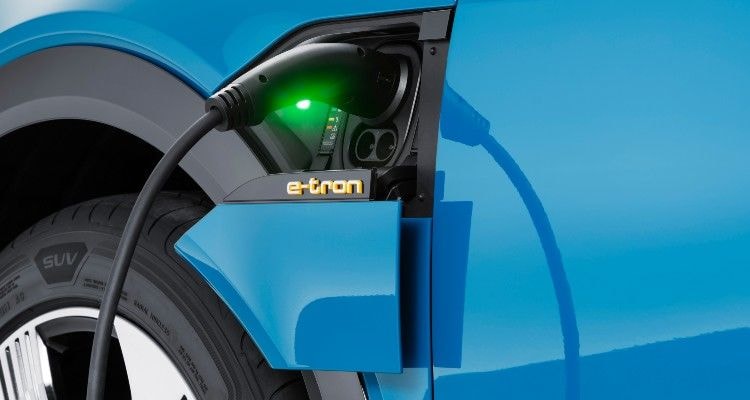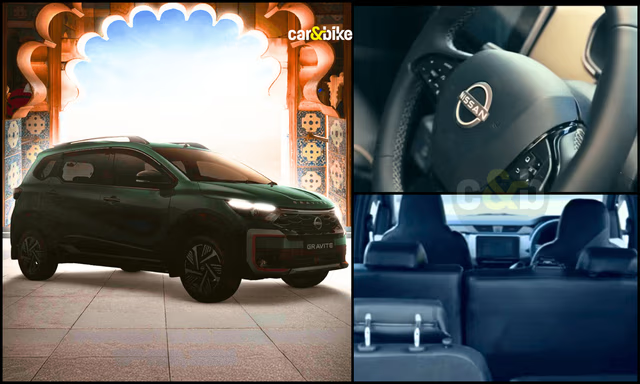Germany To Spend 6.3 Billion Euros On Push For Electric Car Charging Points

The German government approved a plan on Wednesday to spend 6.3 billion euros ($6.1 billion) over three years to rapidly scale up the number of charging stations for electric vehicles across the country, as part of its push towards net zero emissions.
The plan envisages a 14-fold increase in the number of charging stations, climbing to 1 million by 2030 from around 70,000 now. It would focus on building them in local municipalities which are currently undersupplied.
It also aims to have 15 million electric vehicles on German roads by 2030 from around 1.5 million now. Other measures in the government's plan include speeding up state approvals to build charging points.
"Our goal: to accelerate the expansion of charging infrastructure, simplify the charging process and thus make it easier for people to switch," said Federal Transport Minister Volker Wissing in a statement.
"We know that electromobility is ramping up rapidly, so we have to be quick."
Germany is expecting exponential growth in the electric vehicle market and the government wants to make it more attractive for buyers to switch to such cars, Wissing said at a press conference after the cabinet approved the plan.
"There has to be a positive experience associated with it," he said.
Germany is home to battery-electric vehicle makers including Volkswagen and Tesla, which has a factory on the outskirts of the capital.
The electric vehicle push comes against a backdrop of surging electricity prices, resulting from an energy crisis fuelled by Russia's invasion of Ukraine.
To address that, the German government plans to cap electricity prices, and Wissing said the energy crisis should not derail longer-term climate goals.
The electric vehicle plan drew a mixed reaction from industry associations, which have long complained that the government has not kept pace with the rapid expansion of electric vehicles.
The German Association of the Automotive Industry (VDA) said it was an important step and that the speed of implementing the proposals was now key. The BDEW energy and water business association said the proposals would lead to more planning and state control, calling it expensive window-dressing.
Latest News
 Jafar Rizvi | Feb 7, 2026Nissan Gravite Interior Spotted Ahead Of February 17 DebutThe Gravite’s interior appears to carry over the familiar layout from the pre-facelift Renault Triber, with only minor updates expected.2 mins read
Jafar Rizvi | Feb 7, 2026Nissan Gravite Interior Spotted Ahead Of February 17 DebutThe Gravite’s interior appears to carry over the familiar layout from the pre-facelift Renault Triber, with only minor updates expected.2 mins read car&bike Team | Feb 7, 2026Jawa 730 Twin UnveiledJawa Moto has introduced the 730 Twin, the fourth model in its lineup to be based on the 750 platform.2 mins read
car&bike Team | Feb 7, 2026Jawa 730 Twin UnveiledJawa Moto has introduced the 730 Twin, the fourth model in its lineup to be based on the 750 platform.2 mins read car&bike Team | Feb 6, 2026Indian Motorcycle Parts Ways With PolarisAs America’s first motorcycle brand prepares to celebrate its 125th anniversary, Indian Motorcycle has parted ways with former parent Polaris to become an independent company.1 min read
car&bike Team | Feb 6, 2026Indian Motorcycle Parts Ways With PolarisAs America’s first motorcycle brand prepares to celebrate its 125th anniversary, Indian Motorcycle has parted ways with former parent Polaris to become an independent company.1 min read car&bike Team | Feb 6, 2026BMW F 450 GS Based Sportbike Spotted On TestThe upcoming supersport machine is expected share the same parallel-twin engine with the upcoming BMW F 450 GS.1 min read
car&bike Team | Feb 6, 2026BMW F 450 GS Based Sportbike Spotted On TestThe upcoming supersport machine is expected share the same parallel-twin engine with the upcoming BMW F 450 GS.1 min read car&bike Team | Feb 6, 2026Tata Sierra Bookings Cross 1 Lakh Mark; Production Ramped UpWith bookings now in six-digit territory, Tata Motors is moving ahead with a phased ramp-up in production, while working through supplier-related constraints.1 min read
car&bike Team | Feb 6, 2026Tata Sierra Bookings Cross 1 Lakh Mark; Production Ramped UpWith bookings now in six-digit territory, Tata Motors is moving ahead with a phased ramp-up in production, while working through supplier-related constraints.1 min read car&bike Team | Feb 6, 2026Mahindra To Set Up Its Biggest Automobile Plant In Nagpur; Production To Begin In 2028The new facility will support next-generation platforms from the brand and will be capable of manufacturing multiple powertrains including ICE, EV & future technologies1 min read
car&bike Team | Feb 6, 2026Mahindra To Set Up Its Biggest Automobile Plant In Nagpur; Production To Begin In 2028The new facility will support next-generation platforms from the brand and will be capable of manufacturing multiple powertrains including ICE, EV & future technologies1 min read
 Bilal Firfiray | Feb 4, 2026Volkswagen Tayron R-Line Review: Sensible Flagship For IndiaVolkswagen has introduced a made-in-India flagship SUV that offers space, comfort, performance, and German driving finesse in a practical three-row package. But is the Tayron R-Line good enough?6 mins read
Bilal Firfiray | Feb 4, 2026Volkswagen Tayron R-Line Review: Sensible Flagship For IndiaVolkswagen has introduced a made-in-India flagship SUV that offers space, comfort, performance, and German driving finesse in a practical three-row package. But is the Tayron R-Line good enough?6 mins read Preetam Bora | Feb 2, 2026TVS NTorq 150 Road Test Review: Bigger, Better & More Efficient!We test the new TVS NTorq 150 out in the real world to get a sense of what it offers in terms of performance, dynamics and fuel economy.7 mins read
Preetam Bora | Feb 2, 2026TVS NTorq 150 Road Test Review: Bigger, Better & More Efficient!We test the new TVS NTorq 150 out in the real world to get a sense of what it offers in terms of performance, dynamics and fuel economy.7 mins read Bilal Firfiray | Jan 21, 2026Tata Punch Facelift Review: New Turbo Engine; Same Old SoulWith the update, the Tata Punch facelift retains its character of being a healthy runabout, which is perfect for Indian roads. But have these changes made it any better?7 mins read
Bilal Firfiray | Jan 21, 2026Tata Punch Facelift Review: New Turbo Engine; Same Old SoulWith the update, the Tata Punch facelift retains its character of being a healthy runabout, which is perfect for Indian roads. But have these changes made it any better?7 mins read Amaan Ahmed | Jan 17, 2026Bajaj Chetak C25 First Ride Review: Basic, Likeable E-Scooter For First-Time RidersThe Chetak C25, in quite a few ways, is poles apart from the larger and more powerful 30 and 35 Series models, but in its mannerisms, it is very much a Chetak.8 mins read
Amaan Ahmed | Jan 17, 2026Bajaj Chetak C25 First Ride Review: Basic, Likeable E-Scooter For First-Time RidersThe Chetak C25, in quite a few ways, is poles apart from the larger and more powerful 30 and 35 Series models, but in its mannerisms, it is very much a Chetak.8 mins read Bilal Firfiray | Jan 9, 2026Toyota Urban Cruiser Hyryder: 10,000 km Long-Term ReviewAfter spending over three months and 10,000 km with the Toyota Urban Cruiser Hyryder Hybrid, we were impressed by its real-world mileage, seamless hybrid, practical comfort, and Toyota reliability. Is it the best C-SUV then?5 mins read
Bilal Firfiray | Jan 9, 2026Toyota Urban Cruiser Hyryder: 10,000 km Long-Term ReviewAfter spending over three months and 10,000 km with the Toyota Urban Cruiser Hyryder Hybrid, we were impressed by its real-world mileage, seamless hybrid, practical comfort, and Toyota reliability. Is it the best C-SUV then?5 mins read




























































































































